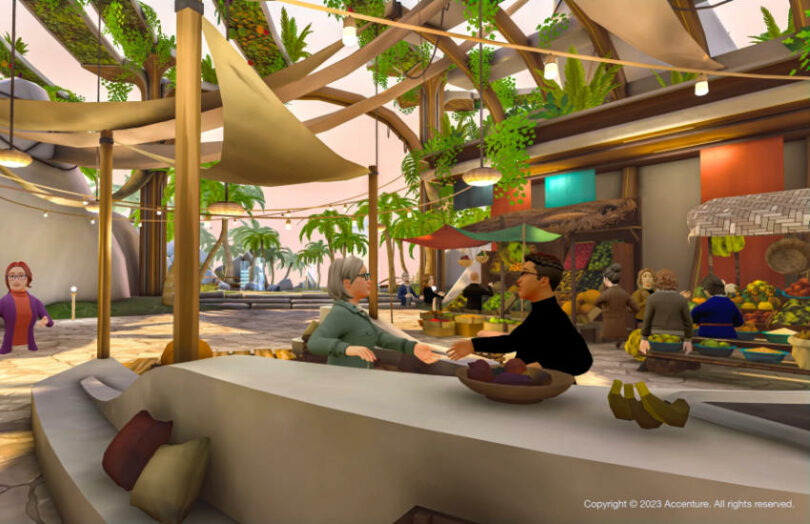Today the World Economic Forum (WEF) unveiled a prototype of its metaverse – “Global Collaboration Village” at its annual meeting in Davos. The initiative was developed in partnership with Accenture and Microsoft to provide a platform for organizations to convene, create solutions, and take action on important issues that challenge the world. A session will take place in the virtual world this week.
The metaverse currently has 80 “Village Partners” supporting the initiative, including consultancies and finance groups – JP Morgan Chase, KPMG, EY, and McKinsey, and international organizations – the United Nations and the World Trade Organization, to name a few. “The Village will use the frontier capabilities of the metaverse to find solutions for addressing the big issues of our time in a more open, inclusive and sustained way,” said Klaus Schwab, Founder and Executive Chairman of the World Economic Forum.
While the Village does not replace existing in-person Forum activities, it serves as a virtual collaborative space to complement real world interactions. The interactive areas in the environment include a town hall with plenaries and workshops, collaborative centers for immersive storytelling, and stakeholder campuses for stakeholder-partner conversations.
Some examples of the interactive spaces include the “Food Innovation Hub” where participants can learn about and adopt sustainable food production practices. Another is the “Mangrove Forest”, which simulates a mangrove ecosystem to demonstrate its importance to a coastal environment. It is built on Microsoft Mesh, a mixed reality platform that can be accessed using a VR headset or a laptop.
The Village was first announced at the WEF 2022 meeting as a Proof of Concept. The idea for the initiative was rooted in the pandemic, which drove the necessity to connect virtually. The expanded rationale is the lower carbon impact as a result of reducing travel. Several international organizations, including Interpol are adopting the metaverse for community engagement.
While it is a natural extension for those with access to digital technologies during the pandemic, it is unclear if the equipment required for the purpose would be immediately accessible to all. This raises a concern about a potential digital divide in the future. However, since the metaverse is still in its nascent stages, companies are collaborating to come up with solutions to its potential pitfalls. For example, the WEF is working alongside several organizations to set global governance standards for metaverse projects.






